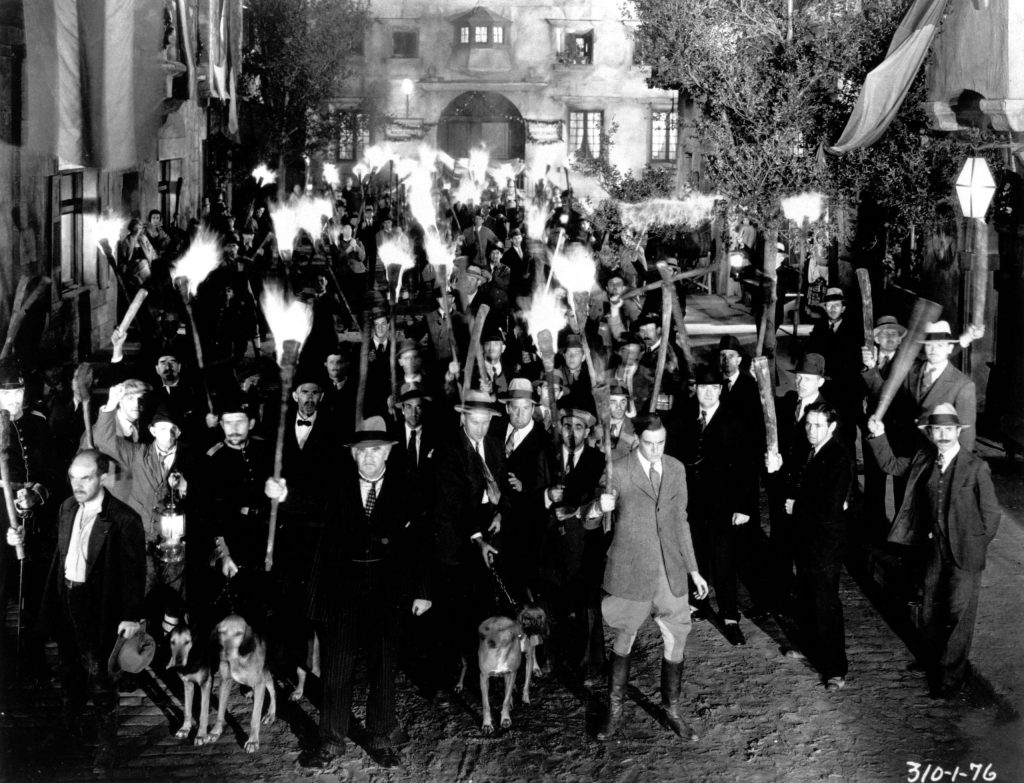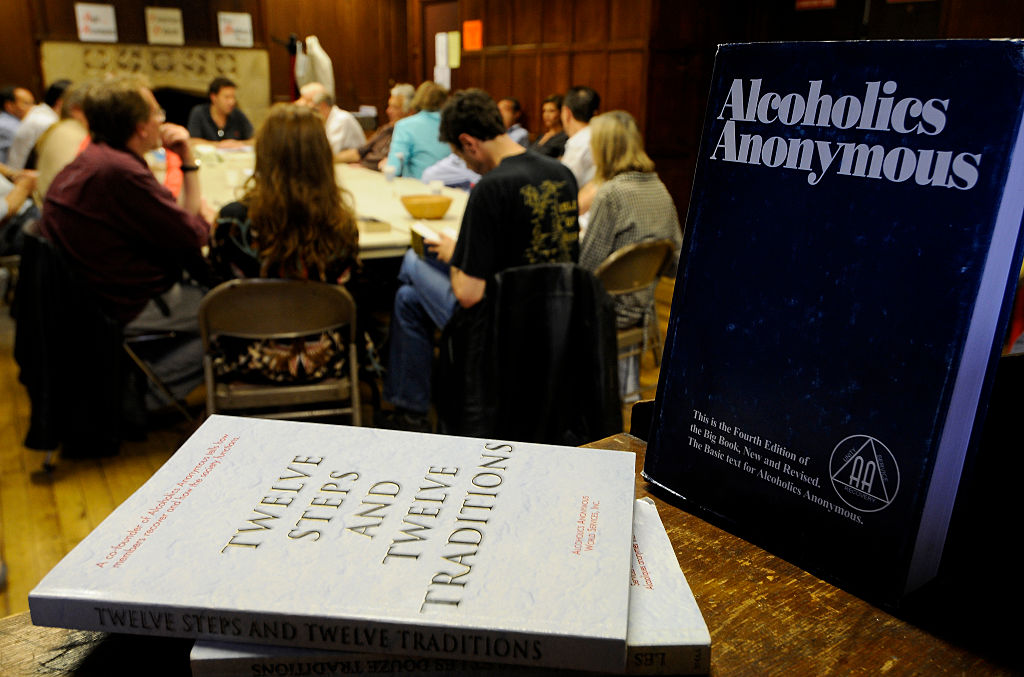It is a truth generally acknowledged that any statement of civil principles will now be met with pitchforks and personal attacks, insinuations of racism, sexism, classism and white privilege, not forgetting online guerrilla action by the army of the fashionably aggrieved, led by their crack troops, the transsexuals.
Take this week’s letter to Harper’s magazine, ‘A Letter on Justice and Open Debate’. One hundred and fifty-two of our finest writers, and also David Brooks of the New York Times, warned that the ‘free exchange of information and ideas, the lifeblood of a liberal society, is daily becoming more constricted’, and that ‘an intolerance of opposing views, a vogue for public shaming and ostracism, and the tendency to dissolve complex policy issues in a blinding moral certainty’ is bad for democracy.
Not much to argue with there, you might think, even if the signatories did include the notorious transphobe J.K. Rowling, the notorious Islamophobe Salman Rushdie and the notorious imposter Jeet Heer of the notoriously unreadable New Republic. But no. Not even obligatory disavowals of Donald Trump and the ‘radical right’ could defend the Harper’s free-speech liberals from the inevitable counter-letter.
The signatories to the Harper’s letter are liberal centrists of various kinds. The liberal sits on the fence. This is not always a comfortable posture, especially when the ground on which the fence rests is giving way and the only people propping it up are on the right side, which most of the liberals sitting atop the fence feel is the wrong side. Many of the Harper’s signatories are employed by national media outlets and universities, and the rest are freelance writers. Their counter-signatories are younger, and also mostly employed by media outlets and universities, and the rest are freelance writers.
This is rarified stuff. It has nothing at all to do with Black Lives Matter or police violence, or free speech. It’s what the Soviets, the ideological ancestors of our woke mob, called ‘careerism’.
The organizer of the Harper’s letter, Thomas Chatterton Williams, is a mixed-race freelancer. The ‘spearhead’ of the counter-letter is Gabe Schneider, who is also mixed-race, but has a plum salaried job as DC correspondent for the Minneapolis Post. In this era of the precariat and the gig economy, you might think Mr Schneider has the better deal. But it is Mr Williams, Mr Schneider seems to believe, who is getting a better deal. He gets it, the counter-letter insinuates, by telling rich white gatekeepers that ‘racism at once persists and is also capable of being transcended – especially at the interpersonal level’. Mr Williams, the letter implies, is an intellectual Uncle Tom. This cannot be racist, because the letter is written in a good cause, or at least in a cause convinced of its own rectitude. So burn him.
Thomas Chatterton Williams’s statement that race may be transcended at the interpersonal level may seem obvious. After all, it is confirmed by the evidence of our eyes every time we see a mixed-race couple, and especially when we see their children. But things must never be what they seem in the through-the-looking-glass world of the left from where the counter-letter comes, a permanently unsafe space whose inhabitants find themselves ‘literally shaking’ every time they read something on Twitter that is demonstrably true but also unacceptable in their ever-shifting ideology of fanatical envy.
In this world of the elect and the damned, Lucy Diavolo of Teen Vogue denounces Kmele Foster and Daryl Michael Scott of Howard University for white privilege. J.K. Rowling is burning in hellfire because she has ‘spouted transphobic and transmisogynist rhetoric, mocking the idea that trans men could exist’. In this world of the ‘weaponized’ career move, a white editor should be hounded from his job because he once attended a Halloween party dressed as a Puerto Rican, but anyone who asks whether a man who becomes a ‘trans woman’ is still a biological male must be hounded as a heretic.
The journalist Jesse Singal, we learn, is ‘infamous’ for ‘advancing his career by writing derogatorily about trans issues’. In 2018, the infamous Singal taped his undercarriage to his perineum and ‘had a cover story in the Atlantic, expressing skepticism about the benefits of gender-affirming care for trans youth’. He even ‘faces and dismisses criticism from trans people, but he has a much larger platform than any trans journalist’. Worst of all, Singal has been exposed by the fearless investigators of Jezebel as belonging to ‘a closed Google listserv of more than 400 left-leaning media elites who praised his work, with not a single out trans person in the group’.
Let’s pause for a moment, reflect upon our complicity in systems of racial supremacy, and sniff the rancid professional jealousy and thwarted ambition oozing from the denunciation of Singal:
‘…had a cover story in the Atlantic…a much larger platform…left-leaning media elites who praised his work’
He’s got it made, the cisgendered, white-passing bastard. He’s even got a profitable podcast with Katie Herzog, who also exercises her privilege to express doubts in public about transsexuals. We must destroy him and burn the witch, so that other, more worthy competitors — people like us and our friends from grad school — can inherit his Atlantic connections and her podcaster’s mike, so that we may promulgate the smelly little orthodoxies that will keep us in better jobs.
I don’t know if ‘infamous’ is worse than ‘notorious’. It must be, because the counter-letter, though it begins with racial inequality (of which there is a lot in the United States), and class inequality (of which there is even more), veers off pretty quickly into the surgically-enhanced ’roid rage of transsexual grievance, with the compulsory intersectional interlude for some medieval-style namin’ ’n’ shamin’ of Jews who have the temerity to object to anti-Semitism.
The authors of the counter-letter are paranoid and ad hominem, which is what happens when you’re denouncing other people all the time: you fear they might detect your secret heresies and come for you. They are resentful and devious, because the media and the academic humanities are glutted with potential employees, but the budgets and employment opportunities are in permanent contraction, so Arionne Nettles, a lecturer in ‘digital storytelling’ at Northwestern University, denounces her better-paid Northwestern colleague Laura Kipnis, a professor who has criticized the left-wing campus culture of ‘sexual paranoia’ and trigger warnings, and who, for betraying the revolution, has secured publishing contracts and newspaper columns, and probably bathes in asses’ milk too.
Apart from these targeted career moves, the authors of the counter-letter appear to know nothing about the businesses they work in. As you’d expect from people who either never left the campus or went straight from it to the echo chamber of left-wing websites, they show little interest in or knowledge of the world in which they live.
‘The intellectual freedom of cis white intellectuals has never been under threat en masse,’ they declaim, oblivious to the history of the Soviet Union, Nazi Germany or any other totalitarian state.
Harper’s, they write, is ‘infamous’ — there’s that word again — for ‘firing editors over editorial disagreements with the publisher’. Just imagine: a privately-owned magazine which now and then reflects the preferences of the person who pays the wages. Citizen Kane would never have stood for that, even if it was, and is, nothing more or less than the rule. Unless, of course, you think the world not only owes you a living, but also expects you to set the terms, ludicrous and malicious as they may be.
The counter-letter doesn’t just convict the Harper’s signatories of the infamous infamy of being ‘white’ and ‘wealthy’. The well-paid phallocratic insiders are also — no sniggering at the back — ‘endowed with massive platforms’. It is this — call it ‘platform envy’ — that drives the rage of the anti-Harper’s mob. After all, even the infamous have a measure of fame.
Dominic Green is Life & Arts editor of The Spectator US.

























